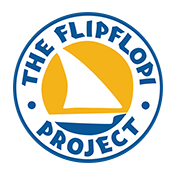Revolution Plastics - Addressing The World’s Plastic Crisis
By Sayyidah Salam, Research Assistant
© UMBER Studios | The Flipflopi
In 2020, the University of Portsmouth launched - Revolution Plastics with a mission to address the world’s plastic crisis with the ambition to transform the way we make, use and dispose of this polluting material. Flipflopi recently established a partnership with the STEPP Program at Portsmouth to collaborate on a number of areas, learn from one another and contribute to sharing solutions to tackling plastic pollution in the global south. Sayyidah Salam shares more about the program…
We are working at three levels of transformation, firstly the University’s own environment and sustainability performance to be one of the world’s leading green universities. Secondly, to build a research community within the university drawing from a range of disciplines including fashion, urban design, enzyme innovation, marine science and more. Lastly, we are working with partners and authorities within the city to drive Portsmouth’s transformation to a sustainable city.
We believe we can achieve more through partnerships. We are working on projects with the G20, UN Environment Programme, the World Bank, Ellen MacArthur Foundation and a host of leading researchers, business leaders, campaigners and citizens.
One of our current projects is bringing collaborative partners together to confront plastic pollution in cities in the global south. The STEPP project (Sustainable Transitions to End Plastic Pollution) is focusing on Nairobi, Kenya and Sylhet, Bangladesh.
© UMBER Studios | The Flipflopi
In cities in the global south, failing waste management infrastructure results in plastic waste ‘leakage’, which accumulates and pollutes the local and global environment. Imports of plastic waste from the EU and US put more strain on these systems. Given that 80% of marine plastic pollution derives from land sources of which >80% can be traced back to rivers in Asia and Africa sustainable transitions will have a global impact and multiple beneficiaries.
The aim of this project is therefore to develop and share a better understanding of how to catalyse sustainability transitions in cities in the global south experiencing severe plastic pollution with a particular focus on circular economy and education. We’re using the 4 R’s principles to identify ways to Recycle, Reduce, Refuse and Recover plastics for better plastic waste management.
Our partners have established trusted relationships with their communities. Working with them we’re using grassroots community-based participatory approaches such as community consultations, focus group discussions and primary data collection through questionnaires that analyze peoples’ awareness of plastic pollution and how it is addressed within the curriculum. This approach ensures a combination of expert and local knowledge is used to empower and benefit the local communities.
We’re also using creative methods and citizen science as research tools and to raise awareness. By using culturally relevant art forms such as music, murals and film, we’ll be able to reach a larger audience.
We’re working with a broad consortium of partners ranging from environmental action organisations such as the FlipFlopi & Kwale Plastic Plus Collectors, and ESDO who pioneered the world’s first plastic bag ban in Bangladesh, universities in both countries - Strathmore and Shahjalal, local governments and community based organisations and youth/arts groups such as the Mukuru Youth Initiative, AMAL Foundation and Friends in Village Development Bangladesh. The expertise we have in this research group has created the opportunity for vital knowledge sharing (we’re delivering a series of webinars) and identifying further collaborative opportunities such as developing a business case for local plastic recycling initiatives.
© UMBER Studios | The Flipflopi
Through the data we’re collecting, we’ll be using the analyses to generate policy recommendations to inform and influence local governance structures (including Ministries of Environment and Ministries of Education), share results of pilot interventions with others around the global south via a virtual South/South workshop, and create a bank of creative outputs that will act as sensitisation materials and educational tools for public awareness-raising.
Whilst the COVID pandemic has caused disruptions to the delivery of the project, reliance on our in-country partners has meant we are still on track to deliver an impactful and transformative action research project.
To find out more about the project please visit the webpage, watch the Knowledge Sharing Seminars and upcoming digital outputs on the YouTube channel and follow the hashtag #STEPPproject on Twitter.
For any queries, please contact the Lead investigator Dr Cressida Bowyer - cressida.bowyer@port.ac.uk



